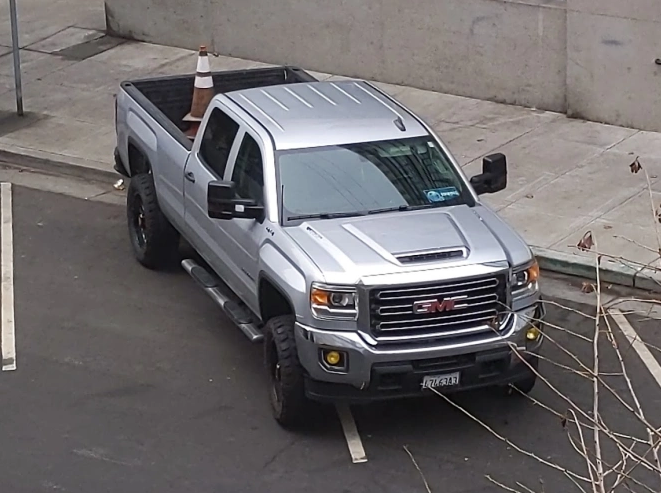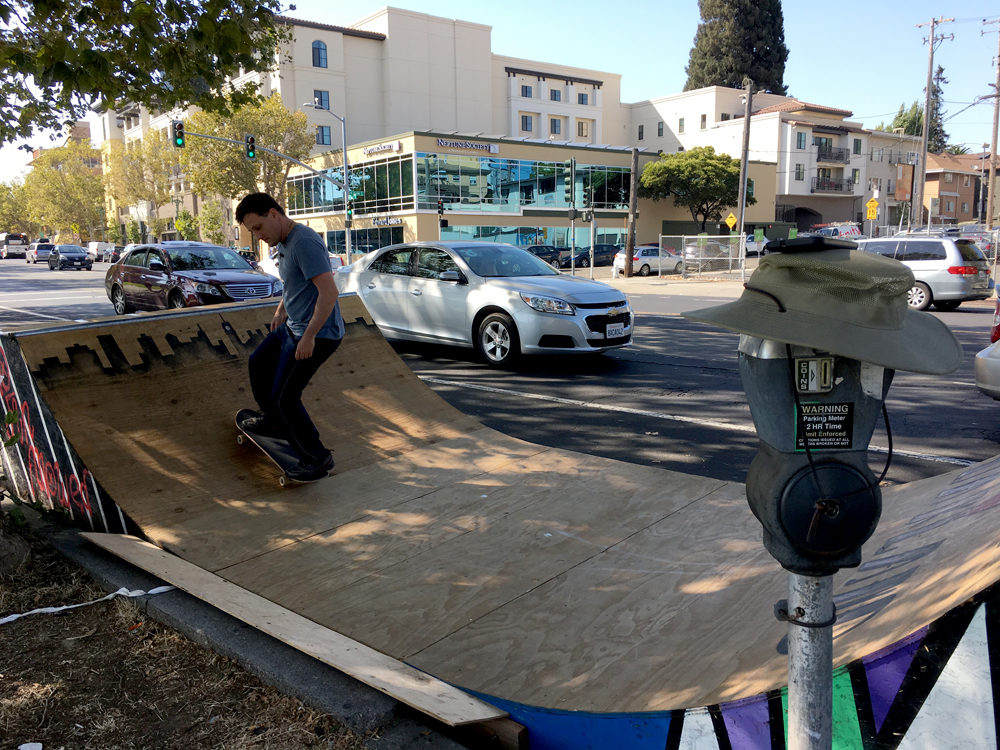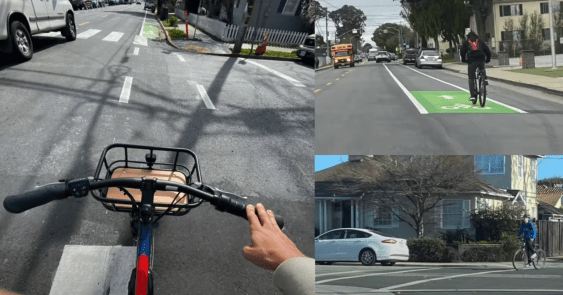Note: GJEL Accident Attorneys regularly sponsors coverage on Streetsblog San Francisco and Streetsblog California. Unless noted in the story, GJEL Accident Attorneys is not consulted for the content or editorial direction of the sponsored content.
It’s all over the media: the war in Ukraine and the subsequent embargo against Russia have gas prices surging. Some pumps are even over $8 a gallon in Northern California.
That’s got some politicians talking about a gas-tax holiday.
Like many Streetsblog readers, I have the luxury of not having to worry about gas prices on a personal level, except perhaps for its impact on the overall economy and food prices.
One thing I have to call out though because I see it all over the Bay Area is the preponderance of gas-guzzling pickup trucks and SUVs (I can literally just look out my window and see these ridiculous machines, as in the lead image). They’re dangerous to other road users because of their weight, size, height, lack of maneuverability, lack of crumple zones, and massive blind spots that put everyone around them at risk. Some owners even add mods such as lift suspensions and killer grills (aka “bull bars”) to make them even deadlier than they are coming off the assembly line.
I don’t want to hear about any gas-price breaks at taxpayer expense going to owners of these vehicles. Whatever policies get discussed to deal with the impact on the economy of the Russian oil embargoes, it had better leave them out.
Now, before someone goes there, stop with the “but I need my truck for work” bullsh*t. No, you effing don’t. You need a truck perhaps, or more likely a van or station wagon, but you don’t need one of these giant, gas-guzzling murder machines. That was your choice.
If the Union Pacific Railroad can manage to service trains and tracks with a truck this size:
Then, I’m sorry, but unless you’re driving a tractor-trailer hauling a load, that’s as large a truck as anybody needs for work.
Livable City’s Tom Radulovich posted an article from the Mr. Money Mustache blog all about the economics—and general stupidity—of most large car and truck ownership. From the article:
See, when you buy a truck, you look smart only at those moments you are maxing that thing out. Payload and towing load at 100% of rated capacity, 16-foot lumber on the roof rack, and the cabin full to the limits of comfort. At that moment, the truck is earning the money you paid for it. Unfortunately for most gentlemen, this moment is Never.
The article goes on to explain how 99 percent of large trucks are money sinks. That makes most contractors who drive them “…look like a Big Dumbass.”
The truck in the lead image, without the jacked-up suspension, gets about 15 MPG. The van below, which is suitable for most contractors and delivery folks, gets about 23-25. It’s also cheaper to buy and maintain.
Some types of contractors can probably even manage with a rolling tool case and public transportation. Or—gasp—one can ride a cargo bike. Obviously, not everybody can do that. But how many truck owners really haul more stuff than Michael Crehan, a San Francisco firefighter who carries 70 pounds of tanks and other equipment on his bike:
Or how about this resistance fighter in Ukraine? Do you haul more than he does (albeit he could really use a trailer or a cargo bike for those rifles)?

Sure, for a family out in the country or the American suburbs trying to get around with a few kids in a 30-mpg, typical, midsize sedan, I don’t mind some kind of tax-rebate for people who are low income—at least on a temporary basis. Over time, high gas prices will persuade people to drive less, buy smaller cars, and maybe even take transit or ride a bike. That will reduce demand and, with it, bring gas prices back down again for everyone, until a new equilibrium is reached. I seem to remember that from Economics 101.
But for the general public, especially those who drive giant SUVs and trucks around the city, fouling the air, damaging roads, and putting everyone at increased risk of death and dismemberment—do they deserve a gas-tax holiday?
No effing way.
Check out Streetsblog USA’s coverage of the international costs of America’s car dependence.






